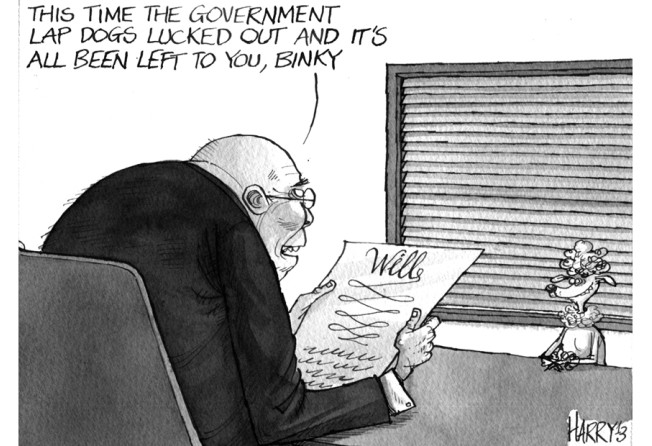
Hong Kong government becomes heir to HK$62m worth of ownerless estates
HK$62 million worth of assets from private estates has gone to the government since 2007, pointing to need for owners to draw up a will

The government has pocketed more than HK$62 million worth of unclaimed private estates in the past five years because the owners died without leaving a valid will or had no next of kin.
According to an official source, the government is still seeking ways to identify the unclaimed estates, which include bank savings and items in safe-deposit boxes.
It is technically difficult for banks to ascertain whether clients with long-inactive accounts have died. Data of unclaimed assets in banks are also classified information.
Solicitor Billy Ma Wah-yan, who specialises in probate, says banks usually issue a public notice to look for their clients or their families in the case of unclaimed safe-deposit boxes.
As a last resort, they could open the boxes in the presence of an independent notary public and sell some items to settle outstanding charges, depending on the agreement between the bank and client, Ma said.
Under the Probate and Administration Ordinance and the common law, any unclaimed estate of a person without a will or traceable next of kin will be paid to the Treasury. This is known as bona vacantia, the legal name for ownerless property.
"That the common law does not like the concept that properties have no owners is an ancient principle. If you can't find the owners, the common law will give the property to the state," said Steven Gallagher, a law professor at Chinese University who specialises in equity and trusts.
People who do not want their properties to go to the government after their deaths should prepare a will, even if they are young but have reached the legal age of 18, according to Gallagher.
For the executor to identify the estate in future, it would be important to list all major assets in the will, he said.
Even if there is no legal requirement that a will has to be drafted by lawyers, Gallagher strongly suggests the drafting should be done by professionals who have the legal knowledge to ensure the document is legally valid and achievable.
"Ambiguity is a big issue - that is why you need a lawyer. Sometimes a will can be ambiguous and lacking in certainty, whether you are giving your property to someone or you pass your property to someone to hold as a trust for someone else," Gallagher said. "So you have to be very careful about the language you use.
"Some people worry about the expenses [of hiring a lawyer], but it does save a lot of problems in the future if you get a lawyer to draft it for you. If the will gives rise to a lot of disputes, it costs even more in the end."
Gallagher acknowledged there was no absolute guarantee that a will executed and operated by a professional could avoid litigation, as shown in the occasional high-profile family dispute over estates left by some of the city's richest people.
"[Those are] very sad cases. They were executed and operated by a professional or by way of professional trust. … Even so, a will is still good evidence of intention [of the testators, or person writing the will] that hopefully [the court] can give effect to the wish of the deceased," Gallagher said.
